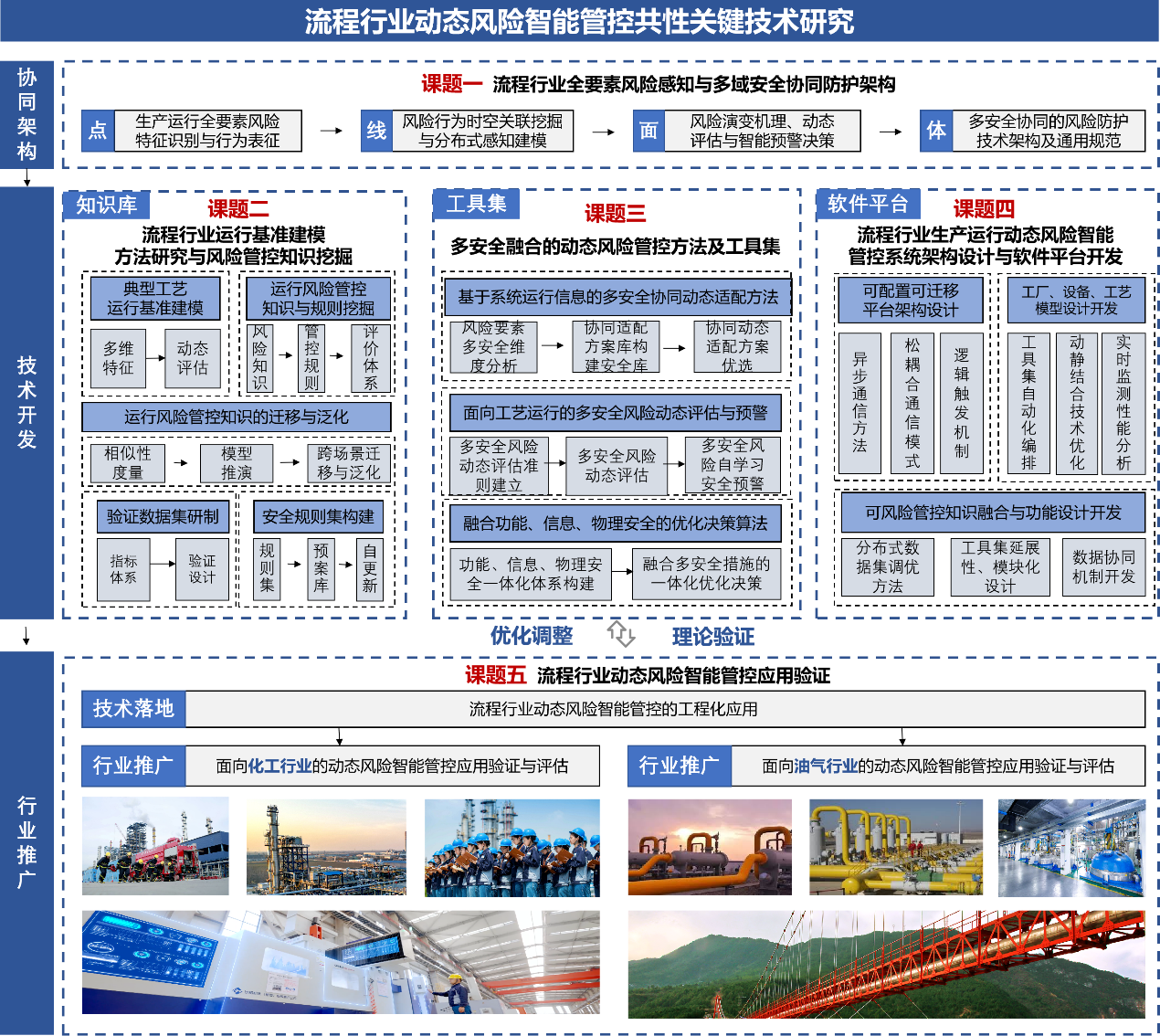Recently, multiple ministries and commissions have issued the notice on the approval of the 2024 National Key Research and Development Program projects. Professor Wang Youqing, the dean of the College of Information Science and Technology, as the project leader, has been granted a national grant of 9.95 million yuan for the project "Research on Common Key Technologies for Dynamic Risk Intelligent Control in Process Industries". This is the first time that our college has been approved as the leading unit for a national key research and development program project, achieving a new breakthrough in the approval of national-level major scientific research projects for our college.

The National Key Research and Development Program focuses on funding major social public welfare research that concerns the national economy and people's livelihood, as well as strategic, fundamental and forward-looking major scientific issues, key common technologies and product research and development that are related to the core competitiveness of industries, overall independent innovation capabilities and national security. The acquisition of this national key research and development grant not only represents a high recognition of the scientific research work of the College of Information Science and Technology at Beijing University of Chemical Technology, but also provides new opportunities and impetus for the school to further enhance its scientific research capabilities, strengthen discipline construction, and promote talent cultivation.
This project is aimed at the difficulties and challenges in the process industry, such as numerous production factors, long process cycles, high equipment integration, and the tight coupling and correlation of material flow, energy flow, and information flow. It studies theoretical methods such as risk perception of all production factors in the process industry and multi-safety collaborative protection, modeling of operation benchmarks and knowledge mining of risk control in the process industry, and dynamic risk control through multi-safety integration. Break through the R&D technologies such as industry verification datasets, operation safety rule sets, and algorithm tool sets, design the architecture of the dynamic risk intelligent control system for production and operation in the process industry and develop the software platform, and conduct application verification in scenarios such as chemical engineering and oil and gas to solve the common key technical problems in the industry. Vigorously promote the improvement of safety management levels in various industries to help enterprises reduce costs and increase efficiency.
